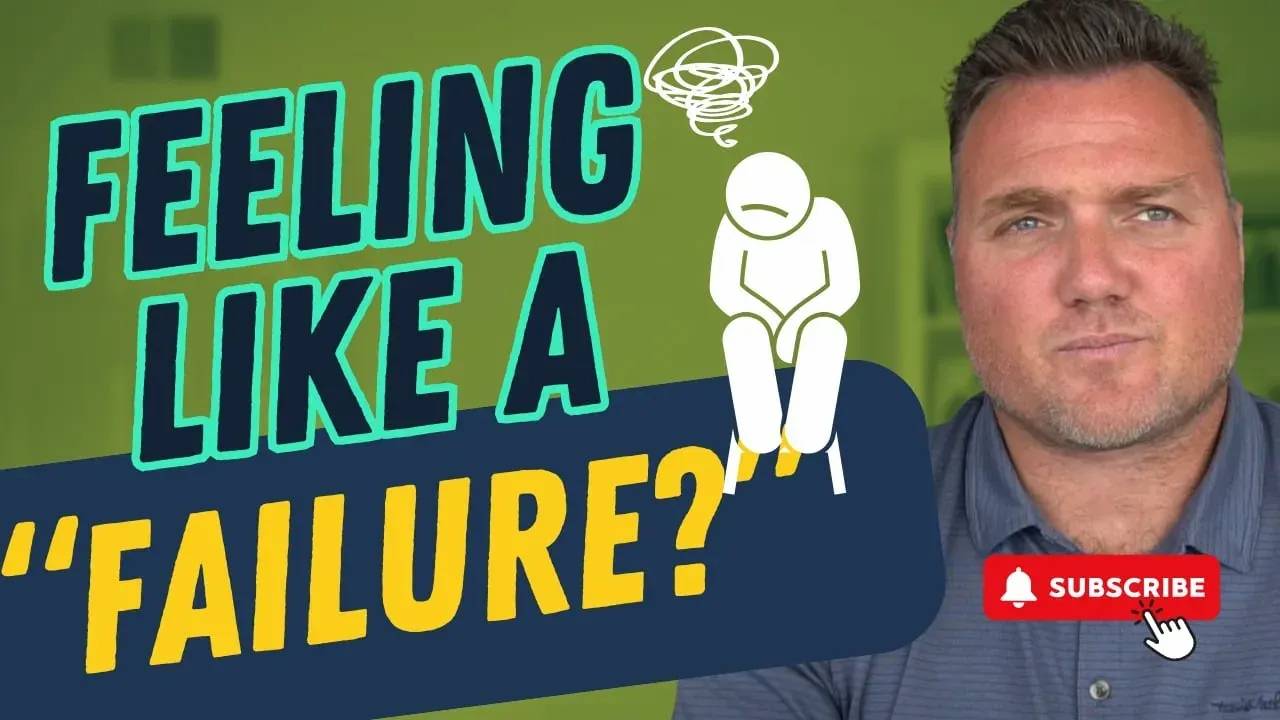What To Do When You Feel Like a Failure: Reframing Setbacks in Recovery
Jun 30, 2025
What To Do When You Feel Like a Failure: Insights from Matt Codde
Feeling like a failure is an experience that nearly everyone faces at some point in life, whether it’s due to personal struggles, comparing yourself to others, or falling short of your own expectations. In episode 445 of Restored Minds, licensed clinical social worker and founder Matt Codde shares powerful insights and practical advice on how to reframe this painful state and move forward on your own unique journey.
Why Do We Feel Like Failures?
According to Matt Codde, feeling like a failure often arises when you’re working hard but not seeing results. Maybe you’re struggling with OCD, anxiety, or chronic stress. You might feel as though your life is in chaos—your health, sleep, relationships, or job might all seem out of sync. Despite putting in more effort, things can get worse rather than better, leading to deep frustration and self-doubt.
Matt emphasizes the paradox at the heart of anxiety and OCD recovery: “The harder you try to fix yourself, oftentimes the worse you’re making yourself.” This is because fighting your thoughts and trying to control unwanted feelings increases emotional pressure rather than relieving it.
The Mud Analogy: Are You Solving the Wrong Problem?
To illustrate this, Matt uses a simple but effective analogy: Imagine you have a muddy backyard. You think the mud is the main problem, so you keep shoveling it out day after day. But if a broken water main is flooding your yard, no amount of effort will keep it dry until you address the actual water source. Here’s the key point: “It’s not that your effort is in vain—it’s just misdirected,” Matt says.
This means that feeling stuck or unsuccessful might be a sign you need new guidance, a fresh context, or better tools—not that you are a failure.
Understanding the Real Problem
Most people make the mistake of thinking anxiety and OCD are about thoughts and feelings. Matt stresses it’s actually about a self-perpetuating loop. Recovery requires not just understanding this intellectually, but embodying and implementing changes. “Learning about it and taking information in is not going to get you better. It’s the embodying of that information,” he explains.
So, if you’re feeling like a failure, ask yourself: Are you really applying the right strategies for the real problem? Or are you shoveling mud while the water main’s still broken?
Comparisons and the Myth of Falling Behind
Another major source of feeling like a failure is comparing yourself to others—especially when your life looks different from your peers. Matt shares from his own experience, recalling how his college years were dominated by struggles with OCD and anxiety. While his friends were enjoying social success, he simply aimed to make it through each day. This led to feeling “behind” in life’s race.
But Matt reminds us that everyone’s journey is different. Developing mental and emotional health may require a detour from the traditional life script, but these challenges also offer the opportunity for deep personal and spiritual growth. “What I realized is, part of my journey—although it didn’t look like other people’s—was necessary for me,” he reflects.
Redefining Failure
The only true way to fail, Matt argues, is by giving up on yourself. As long as you keep moving forward—even if it’s just one step at a time—your success is inevitable. All other forms of “failure” are just moments of miscontextualization.
How to Move Forward When You Feel Like a Failure
-
Reframe the problem: Ask yourself if you’re addressing the right issue, or if you need new tools and guidance.
-
Stop unhealthy comparisons: Remember, each person’s path is different, and your current situation may be a necessary part of your growth.
-
Embody, don’t just understand: Take what you learn and put it into daily practice until it becomes second nature.
-
Keep going: Don’t give up on yourself. Keep putting one foot in front of the other, no matter how slowly.
Conclusion
If you’re experiencing that hopeless feeling of failure, know that you are not alone and that you may just need a new perspective, guidance, or approach. Your journey is your own, and progress comes from understanding, embodying change, and showing yourself compassion along the way. As Matt Codde says, “Wishing you a great day and a great week. You’re not a failure—you’re just on your own unique path.”
Looking for more help on your recovery journey? Visit RestoredMinds.com for expert resources on overcoming OCD, anxiety, and stress.


